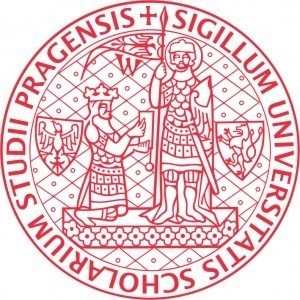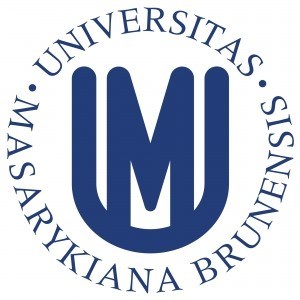Photos of university / #rmituniversity
The Master of Medical Radiations Science (Research) at RMIT University offers advanced academic and practical training for professionals seeking to deepen their expertise in medical imaging, radiation therapy, and related fields. This postgraduate research program is designed to equip students with the skills necessary to contribute to the development of innovative techniques, improve patient outcomes, and advance the scientific understanding of medical radiations. Through a combination of rigorous coursework and supervised research projects, students will explore cutting-edge technologies, clinical applications, and the latest scientific discoveries in medical radiations science. The program provides a comprehensive foundation in research methodology, data analysis, and academic writing, preparing graduates for careers in clinical practice, research institutions, or academic environments. Students will have access to state-of-the-art laboratories and collaborate with leading experts in the field, fostering a stimulating environment for scholarly inquiry and innovation. The course is suitable for qualified radiographers, radiation therapists, or health professionals aiming to specialize further or pursue a research-oriented career. By undertaking this program, graduates will gain advanced knowledge and analytical skills necessary to undertake independent research, contribute to evidence-based practices, and influence policy and technological advancements in the healthcare sector. Overall, the Master of Medical Radiations Science (Research) is an excellent pathway for those committed to advancing medical radiations science through research, innovation, and leadership.
The Master of Medical Radiations Science (Research) at RMIT University is an advanced program designed to provide students with in-depth knowledge and research skills in the field of medical radiations. This course caters to professionals and graduates seeking to enhance their understanding of medical imaging, radiotherapy, nuclear medicine, and radiation safety through a research-focused approach. The program offers a comprehensive curriculum that combines theoretical foundations with practical research methodologies, equipping students to contribute to innovative practices in medical radiations. Throughout the course, students will engage in independent research projects under the supervision of experienced academics, allowing them to explore specialized areas such as image analysis, radiation physics, dose optimization, and patient safety. The program aims to foster critical thinking, analytical skills, and scientific writing abilities, preparing graduates for careers in research, academia, or advanced clinical roles. Students will also have access to state-of-the-art laboratories and research facilities, facilitating hands-on experience with cutting-edge technology and techniques. The Master of Medical Radiations Science (Research) emphasizes the importance of evidence-based practice and encourages collaboration across multidisciplinary teams in healthcare settings. Upon completion of the program, graduates will be equipped to contribute meaningfully to the advancement of medical radiations science, participate in innovative research, and support clinical decision-making processes to improve patient outcomes. This program is suitable for individuals passionate about science and healthcare who wish to pursue a research career, further academic study, or specialized roles within the medical radiations sector.
- An kindergarten bachelor degree with at least a credit average in the final undergraduate year
- Or still another recognised award appeared to be equivalent in standard and character to your four-year under graduate degree, with at least a credit average in the final undergraduate degree. Alternatively applicants may provide evidence of formal academic credentials and experience that satisfies the Dean of their School of Graduate Research or nominee the candidate is promoting knowledge of the discipline of study or cognate field and the potential for research sufficient to undertake the proposed application.
The Master of Medical Radiations Science (Research) program at RMIT University offers a variety of financing options to support students throughout their studies. Domestic students may be eligible for government subsidized places, which significantly reduce the tuition fees, through programs such as HECS-HELP. Additionally, students can apply for various scholarships and grants specific to health sciences and research fields, which are awarded based on academic merit, financial need, or demographic criteria. International students are responsible for paying the full tuition fee unless they qualify for specific scholarships or sponsorships; the fee details are available on the university's official website. Payment plans are available, allowing students to pay tuition fees in installments rather than as a lump sum, which facilitates manageable financial planning. RMIT also offers financial counseling and support services to help students navigate their funding options and plan their finances effectively. External funding sources, such as research grants and industry sponsorships, may also be available for students engaged in research projects. Students are encouraged to explore government and private scholarship databases, as well as external funding bodies that support postgraduate research studies in health sciences. The university's financial services provide comprehensive guidance on eligibility criteria, application procedures, and deadlines for various funding sources. Additionally, students might consider part-time work opportunities facilitated by the university’s employment services, enabling them to gain income while pursuing their research degree. Overall, the financing of the Medical Radiations Science (Research) program at RMIT is designed to accommodate diverse student needs, ensuring access to quality postgraduate research education in medical radiations science without financial hardship.
The Master of Medical Radiations Science (Research) program at the Royal Melbourne Institute of Technology (RMIT) is designed to provide postgraduate students with advanced knowledge and research skills in the field of medical radiations. This program aims to prepare graduates for careers in academic research, clinical innovation, and healthcare technology development within the medical imaging, radiotherapy, and nuclear medicine disciplines. The program includes coursework components that deepen understanding of radiation physics, medical imaging techniques, radiobiology, and research methodologies. Students are typically engaged in original research projects under faculty supervision, contributing new knowledge to the field of medical radiation sciences. The program is suitable for those seeking to pursue careers in research institutions, healthcare organizations, or further doctoral studies. RMIT’s state-of-the-art facilities and close industry connections ensure students have access to cutting-edge technology and practical research environments. The duration of the program generally offers flexibility for full-time or part-time study, accommodating working professionals. Admission into the program usually requires a relevant undergraduate degree in medical radiations or a related health science discipline, along with a strong academic record and research proposal. Graduates of the program will possess critical analytical skills, in-depth technical expertise, and a comprehensive understanding of ethical and safety considerations relevant to medical radiation practices. This advanced qualification enhances career prospects by enabling graduates to contribute to scientific advancements and evidence-based improvements in patient care. The RMIT community fosters a collaborative research environment, encouraging innovation, interdisciplinary collaboration, and professional development. Throughout the course, students benefit from specialized workshops, seminars, and industry placements that reinforce theoretical knowledge with practical application. Overall, the Master of Medical Radiations Science (Research) at RMIT offers a rigorous academic pathway for those committed to advancing the field of medical radiations through research excellence.






